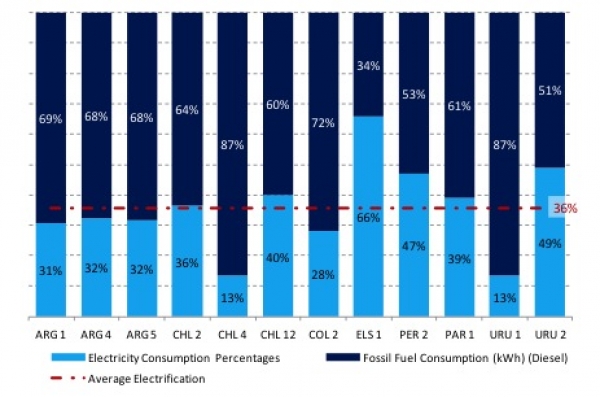PortEconomics associate member Gordon Wilmsmeier (UNECLAC, Chile) along with Ann-Kathrin Zotz (UNECLAC, Chile), Jens Froese (Jacobs University, Bremen, Germany) and Andreas Meyer (Independent Consultant) presented their latest research on “Social and instrumental antecedents of clique survival in the port industry network: A longitudinal perspective” during the the annual conference of the International Association of Maritime Economists – IAME 2014, that was held in Norfolk, Virginia, USA.
Τhe study presents a detailed comparative analysis of energy consumption patterns in container terminals in order to identify main energy consumption sources and to benchmark a set of terminals. The study provides detailed insight to the different energy consumption sources and costs and relates them to the terminals container handling processes. Thus the work allows a differentiated calculation of energy consumption per container type as the basis for future energy efficiency measures and of potential solutions to reduce emissions at the terminals.
The objective is threefold: Firstly, the development of a detailed mapping of energy consumption sources in container terminals; secondly, the presentation of a first benchmark of energy consumption in Latin American container terminals; thirdly to calculate the differences between reefer and standard containers in the terminals energy consumption matrix.
The results of this work are to obtain theoretical insights into the current energy consumption pattern which is inspired by the emergence of new trade pattern on the one hand and the search to improve the sustainability of logistics chains in the other. This makes the study highly relevant, not only in terms of academic research, but also from an industrial and policy makers’ perspective, given the urgent need to address energy security and climate change.
You may freely download the paper and presentation @PortEconomics.












